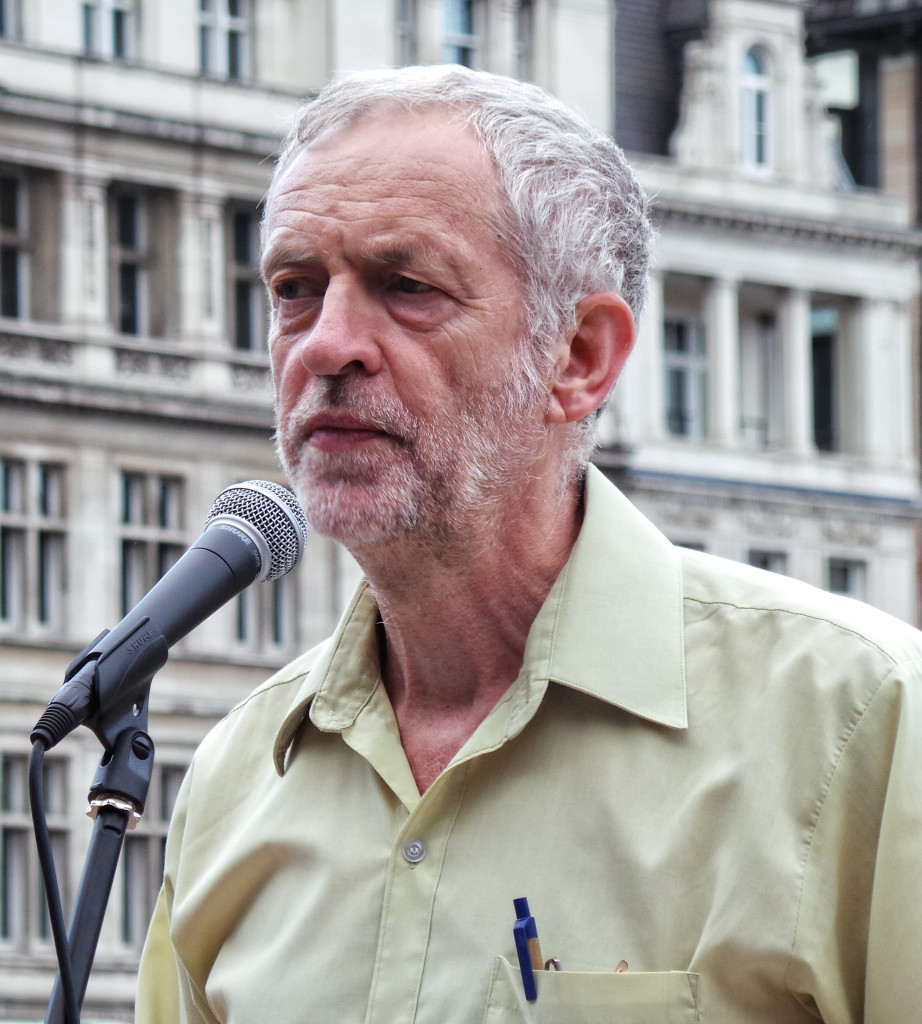The latest Corbyn fad: a friend of terrorists.
Jeremy Corbyn, a prospective leader of the Labour party, seems to have taken the United Kingdom by storm. With the hard left championing him as a hero, and the centre-left all the way to the hard right condemning him as a harbinger of the left’s destruction.
Naturally, scrutiny of his policies follows. From the potential withdrawal of Nato and espousing less military interventionist politics, to the possibility of having separate train carriages for women after 10 pm as a way to combat sexual harassment. Although as the linked article here reveals, this idea is not new in British politics, as Conservative transport minister Claire Perry floated the idea in 2014, but it never went forward.
The latest “fad” of scrutiny that has hit Corbyn has been his stance on diplomacy. Especially with Palestinian terrorist group Hamas. The interview where this was highlighted put Corbyn on the defensive, as he stood “accused” of calling Hamas, a terrorist group, his “friends”. Although he clarified this and stressed the importance that this group be part of a future debate for any meaningful peace between Palestine and Israel, it appeared that this was not enough. From the Telegraph to the Independent – they are not forgetting to remind us of his approach.
The popular but empty phrase of “we do not negotiate with terrorists” has guided many an opinion on this issue. Despite the lack of an objective definition into an otherwise ambiguous concept (because all governments support one “terrorist” group or have engaged in “terrorist” acts in one form or another), the discourse of the War on Terror has gripped our society firmly. It deceives us into being the least diplomatic at a time when diplomacy is crucial.
“But terrorism is not ambiguous!”
And that is probably true to any decent human individual. We can see an act, and we can more or less identify it’s “terrorist” nature by how it grips groups of people hostage with fear to achieve political ends. And yet, despite the existence of many international treaties outlining how states are to respond to terrorism, no definition of terrorism exists as they simply cannot agree. The reasons for this may be that the overwhelming majority of “significant” states have engaged in or supported terrorist acts. Or it could be for another reason. But the important point is that, thus far, the designation of a group as a “terrorist organisation”, whether it is Hamas, Hezbollah, Al-Qaeda, or the “Islamic” state, simply reflects a state’s interests.
Does that mean that this designation is wrong? Not necessarily. Does it mean that there is some unspoken rule that these groups should never ever be negotiated with? No it does not.
In regards to Hamas in particular, there are a number of things that we must consider. Firstly, any organisation like Hamas can afford to be radical in its infancy. But as it grows in influence and power, and begins to govern territory, then it will develop certain interests. Interests that cannot be fulfilled by the use of force. And so you will have the “doves” in Hamas who are more diplomatically flexible, and you will have the “hawks” who are more hard line and up for war.
Secondly, we cannot ignore the simple fact that Hamas has played a significant role in Palestinian politics. They still remain popular by a large minority according to the latest polls. It is important to remember that this organisation is not just characterised by its military wing (the Ezzedin al-Qassam Brigades), but also its political wing. People voted for them because of, among other things anger against the PLO’s inefficiency and corruption, as well as more charitable aspects of their government. Therefore, excluding it outright from negotiations will be counter-productive to a just and lasting solution. This does not mean that I personally support Hamas, but I am acknowledging the desires of my fellow Palestinians.
What needs to be done is to engage the “doves” within the ranks of Hamas, and to show them that some of their goals (such as the destruction of Israel) are not relevant, and their other goals (of fulfilling the right to return, and achieving peaceful lives for its citizens) are still achievable. Hamas officials have previously said they are willing to enter into talks and negotiations with Israel. Inclusion in negotiations would not mean endorsement of every single one of their policies or ideas.
“So why does Hamas not update its charter, which advocates the destruction of Israel?”
One of the problems with Middle Eastern political culture is the “two faced” approach adopted by leaders. One face they use is for their own public to show that they are strong, persistent and people of principle. The other face they show to the West or outside allies to gain favour. Benjamin Netanyahu himself, who lectures the world on Israel being the only tolerant democracy in the Middle East, appealed to racist right wingers by saying that the Arabs of Israel “are coming out in droves” to vote for the last election. And that Israel needed to be saved by the radical right. This is not to say the latter “face” has no truth behind it. But Hamas’ charter, which promotes armed resistance, is used for popularity. For a desperate population, a major political party that promotes “armed resistance” is better than one that engages with endless negotiations that get nowhere.
Further, Hamas is divided between its external political wing who are exiled, and its internal political wing who reside in and rule the Gaza strip. Given these facts, there is no doubt that there are those within Hamas who are flexible and not as much “hard liners” as some would like you to believe. And over time, Hamas can change its approach to adapt to new situation.
In the end, the designation “terrorists”, and a society’s demands that you take an absolutist stance on these “terrorists” only stands to benefit those who seek conflict. Granted, there are genuine strategic reasons for not negotiating with terrorists in certain situations. But Corbyn’s assessment is a valued one.
Breaking away from this discourse, and leaving our minds open to diplomacy is absolutely vital for us as a society. The importance of keeping diplomatic channels open is reflected in an ancient rule that is observed to this very day – diplomatic immunity for ambassadors and messengers.


